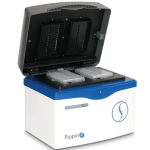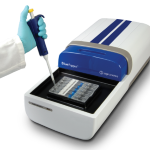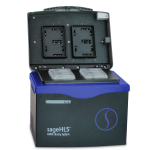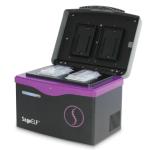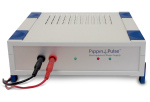January 2023
Authors:
Ingrid P. Vogelaar, Stephanie Greer, Fan Wang, GiWon Shin, Billy Lau, Yajing H, Sigurdis Haraldsdottir, Rocio Alvarez, Dennis Hazelett, Peter Nguyen, Francesca P. Aguirre, Maha Guindi, Andrew Hendifar, Jessica Balcom, Anna Leininger, Beth Fairbank, Hanlee Ji, Megan P. Hitchins
Abstract:
“Lynch syndrome (LS), caused by heterozygous pathogenic variants affecting one of the mismatch repair (MMR) genes (MSH2, MLH1, MSH6, PMS2), confers moderate to high risks for colorectal, endometrial, and other cancers. We describe a four-generation, 13-branched pedigree in which multiple LS branches carry the MSH2 pathogenic variant c.2006G>T (p.Gly669Val), one branch has this and an additional novel MSH6 variant c.3936_4001+8dup (intronic), and other non-LS branches carry variants within other cancer-relevant genes (NBN, MC1R, PTPRJ). Both MSH2 c.2006G>T and MSH6 c.3936_4001+8dup caused aberrant RNA splicing in carriers, including out-of-frame exon-skipping, providing functional evidence of their pathogenicity. MSH2 and MSH6 are co-located on Chr2p21, but the two variants segregated independently (mapped in trans) within the digenic branch, with carriers of either or both variants. Thus, MSH2 c.2006G>T and MSH6 c.3936_4001+8dup independently confer LS with differing cancer risks among family members in the same branch. Carriers of both variants have near 100% risk of transmitting either one to offspring. Nevertheless, a female carrier of both variants did not transmit either to one son, due to a germline recombination within the intervening region. Genetic diagnosis, risk stratification, and counseling for cancer and inheritance were highly individualized in this family. The finding of multiple cancer-associated variants in this pedigree illustrates a need to consider offering multicancer gene panel testing, as opposed to targeted cascade testing, as additional cancer variants may be uncovered in relatives.”
Sage Science Products:
The HLS-CATCH process (SageHLS system) was used with the 10X Genomics linked read Chromium platform for high resolution haplotype analysis of MSH2 and MSH6 variants (300 kb target, Chr2p21-p16 region).
Author Affiliations:
Department of Medicine (Oncology), Stanford Cancer Institute, Stanford University, Stanford, CA
School of Public Health (Epidemiology), Harbin Medical University, Harbin, China
Bioinformatics and Functional Genomics Center, Department of Biomedical Sciences, Cedars-Sinai Medical Center, Los Angeles, CA
Department of Pathology and Laboratory Medicine, Cedars-Sinai Medical Center, Los Angeles, CA
Samuel Oschin Cancer Center, Cedars-Sinai Medical Center, Los Angeles, CA
Department of Laboratory Medicine and Pathology, Mayo Clinic, Rochester, MN
Minnesota Oncology, Woodbury, MN
Lynch Syndrome Australia, The Summit, QLD, Australia
Stanford Genome Technology Center West, Palo Alto, CA
Lowy Cancer Research Centre, University of New South Wales, Sydney, NSW, Australia
MDPI Cancers
DOI: 10.3390/cancers15010228
